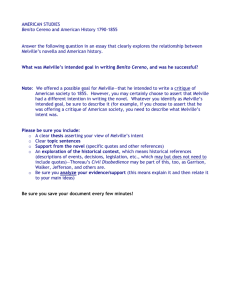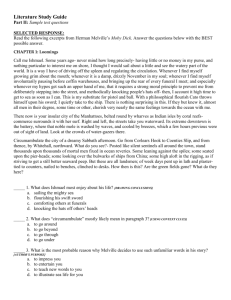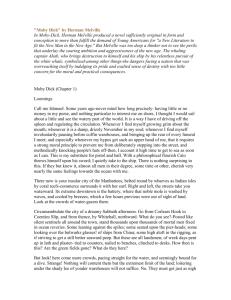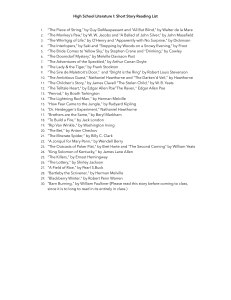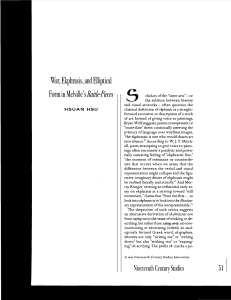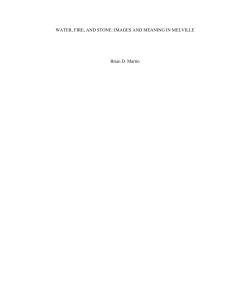Garin Dowd (Thames Valley) Pierre, or The Ambiguities
advertisement
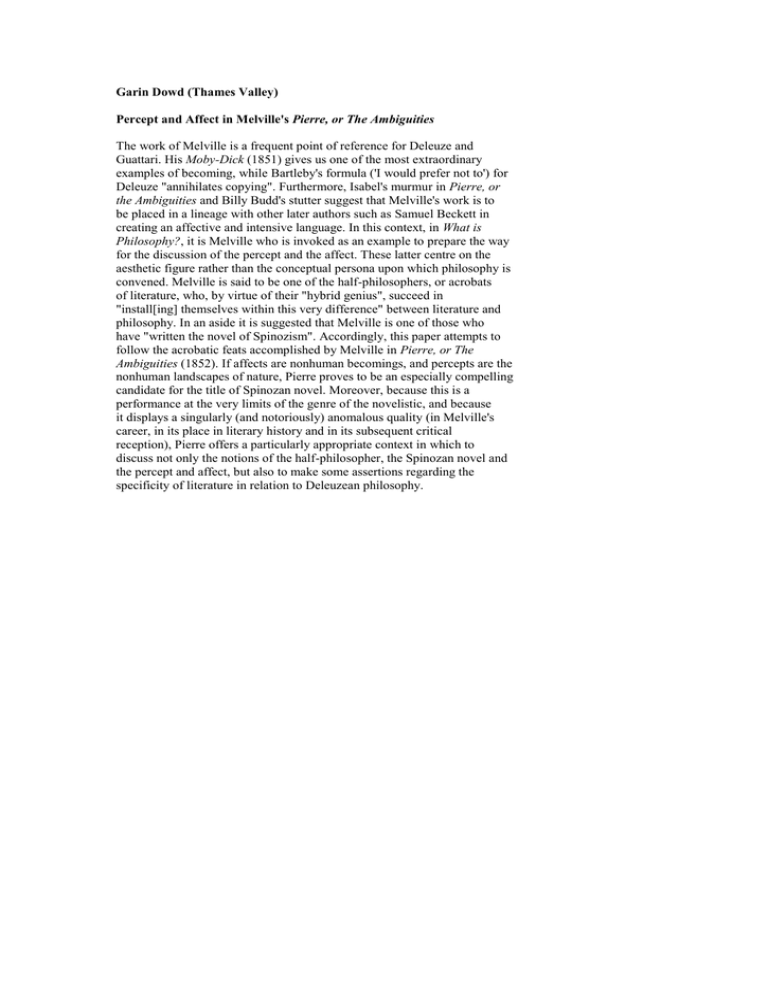
Garin Dowd (Thames Valley)
Percept and Affect in Melville's Pierre, or The Ambiguities
The work of Melville is a frequent point of reference for Deleuze and
Guattari. His Moby-Dick (1851) gives us one of the most extraordinary
examples of becoming, while Bartleby's formula ('I would prefer not to') for
Deleuze "annihilates copying". Furthermore, Isabel's murmur in Pierre, or
the Ambiguities and Billy Budd's stutter suggest that Melville's work is to
be placed in a lineage with other later authors such as Samuel Beckett in
creating an affective and intensive language. In this context, in What is
Philosophy?, it is Melville who is invoked as an example to prepare the way
for the discussion of the percept and the affect. These latter centre on the
aesthetic figure rather than the conceptual persona upon which philosophy is
convened. Melville is said to be one of the half-philosophers, or acrobats
of literature, who, by virtue of their "hybrid genius", succeed in
"install[ing] themselves within this very difference" between literature and
philosophy. In an aside it is suggested that Melville is one of those who
have "written the novel of Spinozism". Accordingly, this paper attempts to
follow the acrobatic feats accomplished by Melville in Pierre, or The
Ambiguities (1852). If affects are nonhuman becomings, and percepts are the
nonhuman landscapes of nature, Pierre proves to be an especially compelling
candidate for the title of Spinozan novel. Moreover, because this is a
performance at the very limits of the genre of the novelistic, and because
it displays a singularly (and notoriously) anomalous quality (in Melville's
career, in its place in literary history and in its subsequent critical
reception), Pierre offers a particularly appropriate context in which to
discuss not only the notions of the half-philosopher, the Spinozan novel and
the percept and affect, but also to make some assertions regarding the
specificity of literature in relation to Deleuzean philosophy.
